Free delivery on orders over £40, only £3.95 under £40
Free delivery on orders over £40, only £3.95 under £40

This article was updated on 22/04/2024.
You may know that a relative, friend or even neighbour would benefit from a mobility aid but how do you go about choosing one that is suitable for them? Even simple household aids can make a difference and maintain independent living.
You may be looking at a mobility and walking aid such as:
Mobility support varies with each of these items, a walking stick can offer support while walking around the house or out and about if the user needs to walk at a slower pace or have stiff joints. Now with various styles and patterns, there is something suited to everyone. Check out our guide to walking sticks for more information.
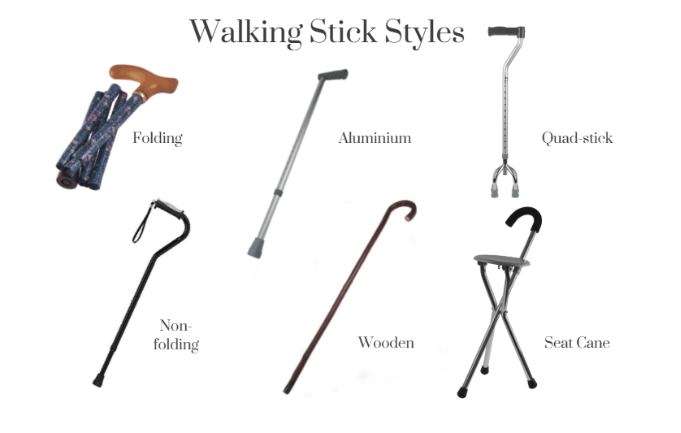
A rollator can offer a lot more independence to those who need more weighted support and may need to sit more often when walking but can still move around for a longer period of time, you can even choose from indoor and outdoor styles.
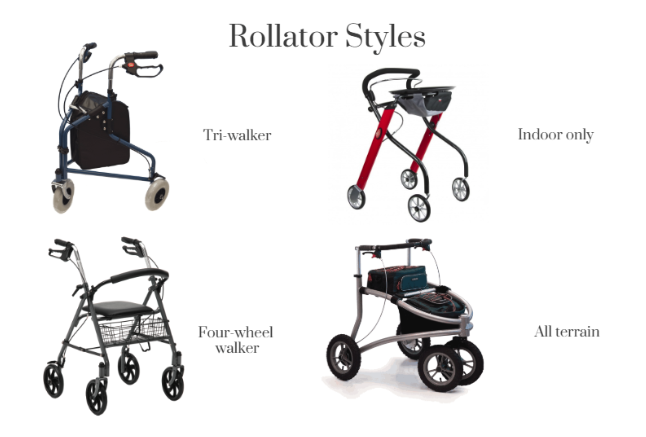
A walking zimmer frame, often used around the home, offers a steady support for those who spend most of their time indoors but need more support than a walking stick. Available with or without wheels. Our guide to walking frames can help you choose a suitable style.
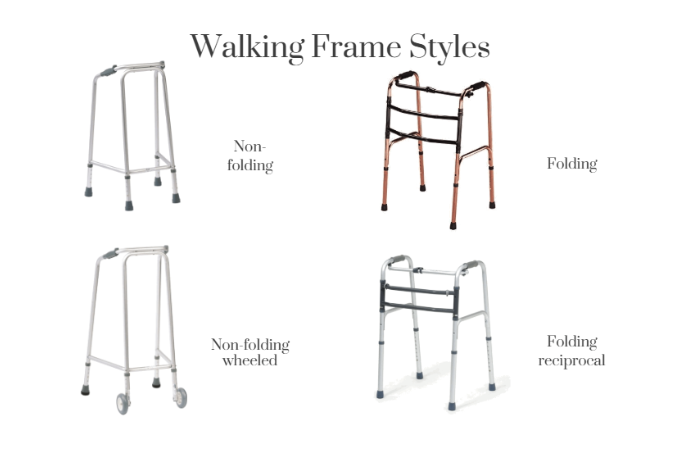
Self-propelled wheelchairs offer independence for anyone with upper body strength but are unable to walk or stand for certain periods of time. An assistant propelled wheelchair is ideal for those who are unable to walk and have assisted living care. Our guide to wheelchairs can give you more information and help you choose a style.
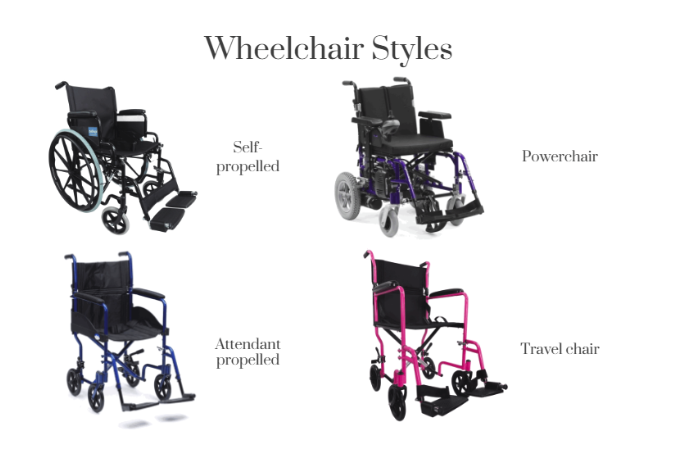
Mobility scooters offer independence on the go for people who are unable to walk for long periods of time but can still go out independently. Choosing a pavement only or road scooter will depend on the confidence and ability of the user. Our guide to mobility scooters will provide you with detailed information on styles and suitability.
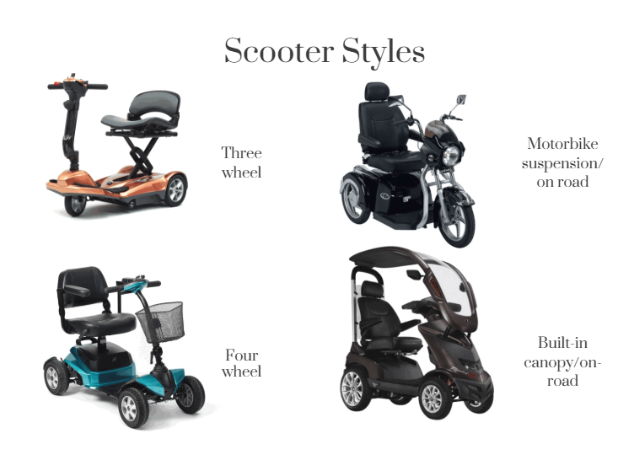
If it’s a smaller daily aid that you are looking to get that might just come in handy or make everyday activities a little bit easier for them, it’s best to think about certain things they do a lot say preparing and cooking food, and what they struggle with, maybe opening jars? Here you could choose a multi-opener or one-handed jar opener which will make the task easier with little effort. It could be something as simple as using a key in the door with limited grip or putting their socks on! Something so simple can provide a lot of help with everyday tasks like these. See our full guide to daily living aids.
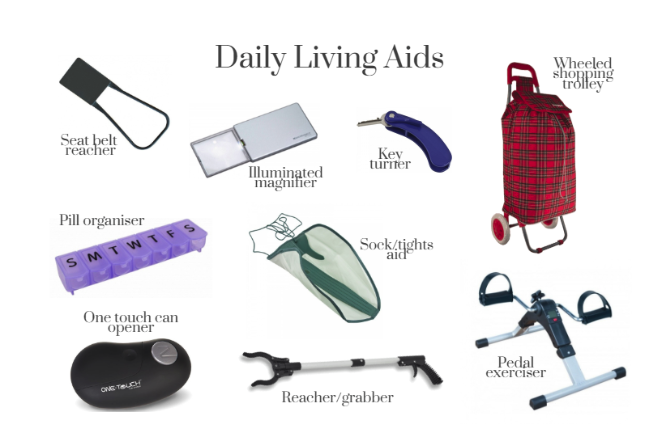
If you are looking for a gift idea, daily living aids can be stylish and practical with some great ideas for gifts and presents.
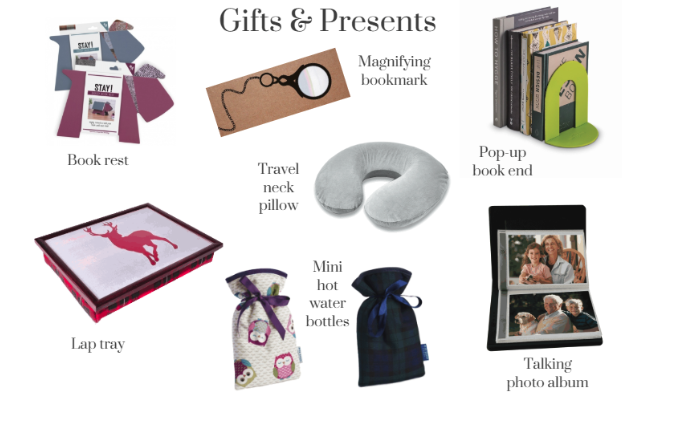
If it’s a specialist care item you are looking for make sure to check with a healthcare professional or their carer if they have one to see what would be suitable if they have a certain condition you are buying the aid for. You can also see our conditions guides for more information on products. Healthcare ideas could include insoles, cast protectors, back care and pain relief whereas specialist care items tend to be handling and transfer aids, dementia-friendly items, incontinence aids and falls management.
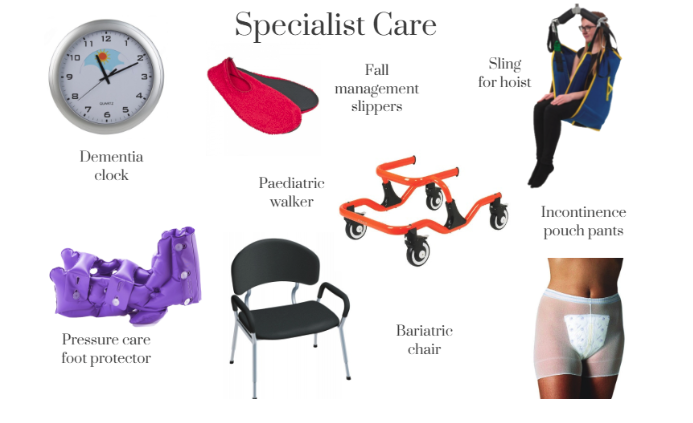
If it’s a particular item for the bedroom, bathroom or kitchen, our room guides can help you understand what aids may be necessary and suitable for the person you are buying for. See full guides for the kitchen, bathroom, bedroom, garden and outdoors.
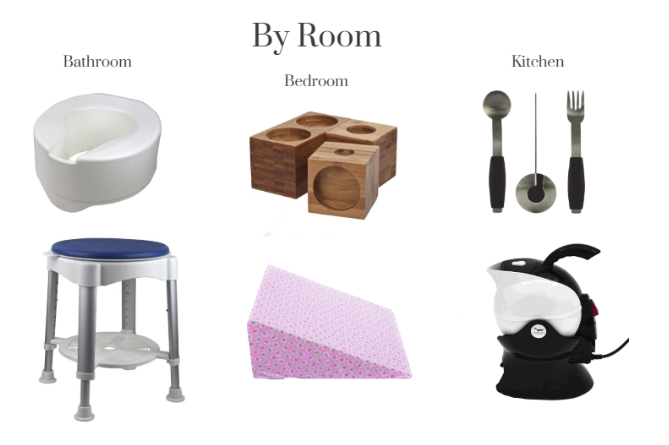

Kate Makin qualified as an occupational therapist (OT) in 2001 with a BSc (Hons) in Occupational Therapy. She is a member of the Royal College of Occupational Therapists (RCOT).
As a registered occupational therapist (OT), Kate is a science degree-based, health and social care professional, taking a “whole person” approach to both physical and mental health and wellbeing. This enables individuals, of all ages, to achieve their full potential and lead as independent life as possible.
Click here for Kate’s registration with the Health and Care Professions Council.
Throughout her career, Kate has worked in many different clinical settings, in both the public and private sector. Kate has been running her own independent occupational therapist business since 2009. She is passionate about disability aids and adaptations, with a specialist interest in postural management and seating.
As Ability Superstore’s resident OT, Kate is on hand to offer professional advice and answer any queries.